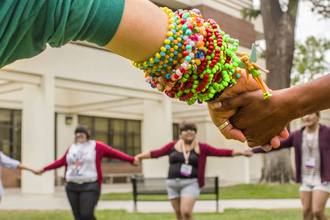GSA Network National Youth Council

The National Youth Council supports the National Association of GSA Networks by providing programmatic leadership, helping plan components of the National Gathering (an annual conference for the National Association of GSA Networks), and working with the National TRUTH Council on GSA Day for Gender Justice.
Youth council members work to support one another and be supported by the Partnerships Team at GSA Network. National Youth Council members are based in states with member organizations of the National Association of GSA Networks. The National Youth Council consists of 8 members from across the country who serve for nine-month terms.
Youth council members work to support one another and be supported by the Partnerships Team at GSA Network. National Youth Council members are based in states with member organizations of the National Association of GSA Networks. The National Youth Council consists of 8 members from across the country who serve for nine-month terms.
.png)